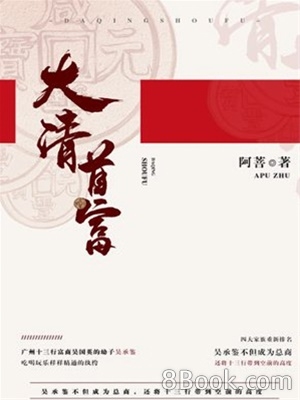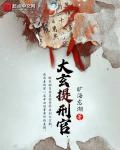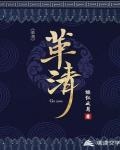Volume 4 Chapter 55 Autumn Rain (Part 1)
Gao Shouyi, the Western Xia envoy, never thought in his life that he would receive such a short and shocking note from the palace of the Song Dynasty.
The content of the note was so absurd and so devoid of etiquette, but it had the personal signature of the Emperor of Zhao Song, and he received it in person after entering the palace of Zhao Song and standing in front of the famous nameless stone pavilion in the autumn rain for a stick of incense... At that time, a fat and white-faced and elegant scholar of the Yutang of Zhao Song handed him the note personally and also gave him a hardcover copy of "Records of the Grand Historian". It could not be faked at all.
To be honest, after Gao Shouyi returned to the Western Xia Embassy on the banks of the Bian River west of the city with this heavy note and the "Records of the Grand Historian", he did not sleep all night. He once thought about making a pot of mutton soup in his bedroom, using the book as firewood, and then stuffing the note into the pot to stew it and eating it together with the meat.
But in the end I didn't dare.
The threat from the Zhao Song government on the note was so explicit that he couldn't imagine covering up the matter. What would he do if it appeared in the Song Dynasty gazette one day and became known to the world?
What this matter boils down to is that no matter how dilapidated and messed up the Song Dynasty was after the Jingkang Incident, this huge country still stood up again after the Battle of Yaoshan and is still the largest country in the world. Therefore, the emperor of the Song Dynasty is still the most powerful person in the world... He is really the most powerful person in the world. In the north, there are still three brothers ruling together, and in the south, there is only this one person whose words count.
No matter how absurd the things done by such a person are, he, as an envoy from a small foreign country, must treat them as a huge matter and with extreme caution.
So, after a sleepless night, the next morning, the Xixia envoy finally called his ghostwriter and carefully wrote a memorial, roughly describing what happened, as a buffer for his own king. Then, he ordered someone to seal this humiliating note and the "Historical Records" together in a tightly sealed box, and rushed out of the Tokyo rain curtain in the autumn of the fifth year of Jianyan along with the ghostwriter's memorial.
He honestly followed the wishes of the Zhao Song government.
Of course, even so, it is almost conceivable that by the time the news reached Western Xia, it would probably be late autumn.
Therefore, instead of expecting a response from the Xixia ruler who had experienced countless Song and Liao emperors, it would be better to focus on the Imperial College and Palace Examinations postponed to late autumn this year, and on the package of financial reforms to be rolled out in winter. Even from a military perspective, it seems that the Jin people's movements are more worthy of attention.
Isn't it that the peace talks failed and it's autumn again? According to past customs, the Jin people should have come.
really.
All we can say is that as expected, just as the confidant of the Western Xia envoy rode at full speed and traveled thousands of miles just to deliver a note, an expected conflict broke out between Song and Jin at an expected time and in an expected place... Fuzhou, where Wu Lin, deputy commander-in-chief of the Imperial Camp Rear Army, was stationed, was suddenly attacked by the Jin army from Yan'an Prefecture in the north. Wanyan Huonu, commander-in-chief of the Jin army's Yan'an Marching Division, personally led his troops south, and his own flag also appeared on the front line.
Of course, since it was an expected offensive, Wu Lin, who had been well prepared, would certainly not suffer any loss. Relying on the Diaoyin Mountain Camp that had been established as early as the Qu Duan era, he successfully blocked Wanyan Huonu's offensive at the Diaoyin Mountain Pass. After two days of fierce fighting that broke out suddenly, the two sides quickly turned into a tactical confrontation.
But the interesting thing is that, during the confrontation between Song and Jin in Diaoyin Mountain, the Danzhou area (east of Fuzhou), which had been greatly alert, did not engage in fighting as expected. Instead, the Bao'an Army and Qingzhou areas northwest of Fuzhou were attacked by the Jin army.
The Jin army's detachment was clearly heading up the Beiluo River, attacking cities and strongholds along the way.
Caught off guard, the Jin army captured several strongholds in the northern part of Gyeongju and the core area of the Bao'an Army. Even the main city of the Bao'an Army, Taoluo Village (the area around Zhidan County in later generations), was cut off from news. Guo Hao, the commander of the imperial camp rear army stationed there, and his 3,000 elite field troops were temporarily out of touch.
When the news reached Fangzhou, south of Fuzhou, Wu Jie, the commander-in-chief of the imperial camp's rear army, was shocked for a moment, but was also dazed. For a moment, he did not dare to send troops to rescue Guo Hao without authorization. He just asked for instructions from three senior officials in Chang'an behind him, Yuwen Xuzhong, Han Shizhong, and Hu Yin.
Relatively speaking, as the Guanxi base camp that had repeatedly been authorized and guaranteed by Emperor Zhao, Chang'an responded very directly and quickly. Yuwen Xuzhong, as the prime minister, issued an official order, requiring Wu Jie to immediately send troops via Fuzhou and turn to Qingzhou in order to rescue Guo Hao; at the same time, Hu Yin, the transport envoy of the five routes of Guanxi, went north to Fangzhou in person and took over the logistics of Fangzhou; and Han Shizhong, the Prince of Yan'an, immediately mobilized part of the troops to go to Tongzhou in person to respond.
I must add one more thing here. Wu Jie's hesitation and trance were not due to his incompetence, but his thinking was restricted by his identity as a soldier, which is why he was temporarily stunned by Wanyan Huonu.
You know, from a big strategic perspective, the Jin army had no reason to attack the Bao'an Army, because even if they occupied the Bao'an Army, if they wanted to turn south, they would have to face complex terrain and the castles that had been built during the nearly 100-year war between the Song Dynasty and the Western Xia...and the remote and poor Bao'an Army could not even provide any logistical relief to Wanyan Huonu's more than 20,000 main forces of the Jin army.
Of course, the entire northern Shaanxi is a remote and poor area, and Wanyan Huonu’s logistics have always been transferred from the Jin army’s own Xijing (Datong) area.
But no matter what, from a military perspective, Wanyan Huo Nu's attack on the Bao'an Army was just attacking the Bao'an Army, and there was really no strategic value at all.
Relatively speaking, Danzhou, which is adjacent to the Yellow River, located to the east of Fuzhou and southeast of Yan'an Prefecture, should be the place that should be truly paid attention to. If the Jin army has any intention of moving south, whether it is to occupy and expand the territory west of the Yellow River, or to follow the example of Loushi before and go down the river to take Guanzhong, they should start from here.
In fact, during the Battle of Yaoshan last year, while Lou Shi led the main force southward along the Beiluo River, Wanyan Huo Nu, who was entrenched in Yan'an Prefecture, led a detachment along the Yellow River to march into Danzhou.
And it was a huge success.
Therefore, from the perspective of Wu Jie, the front-line commander, he really couldn't understand why Huo Nu didn't come to Danzhou, but instead went to fight the Bao'an Army.
However, Huo Nu did not attack Danzhou, but instead attacked the security forces which had no strategic significance.
As for the quick reaction in Chang'an, it was not because Yuwen Xuzhong, Hu Yin and others were still completely ignorant of military affairs and were giving blind orders, nor was it that they suddenly became famous ministers who knew military affairs. Instead, as civil officials, they combined the information about the civil unrest in the Jin Dynasty and the death of Nianhan with the situation of Wanyan Huonu's inappropriate deployment of troops stationed in Yan'an Prefecture, and guessed Huonu's subtle mentality and situation early on.
This time the Jin army marched south after the autumn, which was consistent with the usual timing, but it was very likely that Wanyan Huonu sent troops on her own initiative.
And if this is the case, then Huo Nu's attack on the Bao'an Army would seem reasonable... Because without the cooperation of the main force of the Hedong Jin Army, Huo Nu would not be able to truly move south, and it would be impossible to form any strategic goals. Instead, it would be more realistic to provoke border conflicts and then swallow up the Bao'an Army for their own benefit.
What happened next verified this conjecture... Throughout the end of August and the beginning of September, as Huo Nu launched the offensive, the Song army's Guanxi base camp responded hastily, and Li Yanxian in Shanzhou also kept passing on messages, but they all repeated one fact, that is, the Jin army in Hedong did not have a large-scale response.
When Wu Jie personally led 10,000 elite troops from the rear of the imperial camp into Gyeongju and began to fight with the Jin army to the north for the fort, the difficulty and weakness of Wu Jie in using troops became more obvious. It can be said that, at this point, the fact that he had sent troops on his own was completely confirmed.
Of course, having said that, it is impossible that the people of Song Dynasty were just caught off guard by the living woman.
"Live girl!"
In mid-September, the news that Huo Nu had sent troops on her own initiative reached the Shangshutai in Yanjing. Some powerful figures became furious on the spot and even threw memorials to the ground.
However, this person was none other than the Third Prince Erlido, who had always had a good temper and was now a devout Buddhist, and was currently the Prime Minister of the Jin Prince's capital province.
This contrast inevitably caused all the civil and military officials of the Jin Dynasty who were discussing matters in the Secretariat to look at each other sideways... Only some people were truly shocked, while some people immediately realized after a little thought that it was natural that Erlido was most sensitive to living women.
I have to interrupt here and talk about the distribution of the highest power in the Jin Dynasty at that time.
It is said that since the death of the founding emperor Aguda, due to political traditions, military deployment, blood relations, succession of the throne, founding achievements and other reasons, the Jin Dynasty formed a situation of three major political factions for quite a long time. They were the faction of the former leader Wuqimai, the faction of Aguda's sons, and the faction of Nianhan who represented the interests of distant clans.
However, the Battle of Yaoshan changed everything. As internal conflicts intensified, the former king Wuqimai suddenly suffered a stroke. Nianhan took the opportunity to imprison Wuqimai's sons. In addition, it happened that he had just accidentally seized the military power of Talai in Daming Prefecture. He suddenly suppressed Wuqimai's faction and actually controlled the government.
However, as the saying goes, "no flower lasts forever", although Nianhan, who actually controlled the government, deliberately won over and divided Aguda's sons, he still ignored the unity of the political interests of the Wanyan clan's close relatives, and overestimated the ability of his own branch to control the government, so that Aguda's sons suddenly launched a rebellion at the Secretariat, killed him, and seized power.
After the Shangshutai Incident, the Nianhan faction completely disappeared in the central government. Nianhan and his son were physically eliminated, and their powerful followers, such as Wanyan Xiyin and Wanyan Yinshu, were bribed, controlled, and annexed . The Wuqimai faction was not re-employed due to disputes with Aguda's sons over the most basic issue of the throne. Wuqimai was still under house arrest, and his sons were exiled. However, Talai, the Wuye brothers, and Pu Jianu and others were retained in the court after the new emperor ascended the throne.
In other words, at this time, the Jin Dynasty's central government, not to mention the young emperor's young age, was actually in power with Aguda's three eldest sons. In addition to abolishing the core leaders of the other two factions, they also included some core figures of the two factions in order to achieve political balance. At the same time, in order to complete basic political reforms, the Jin Dynasty's central government also recruited a large number of Han officials from Liao and newly surrendered Han officials from the south as political supplements.
To be fair, this result was already a remarkable political harmony for the Jin Dynasty, which had just separated from the tribal alliance and was bound to switch to the Han system.
In particular, Wanyan Wushu, the fourth son of Aguda, who actually masterminded the Shangshutai rebellion, can be said to have made huge political sacrifices for the overall situation and gave up a large number of political benefits that were originally within his reach, thus establishing a relatively stable political structure.
However, the foundation of the Jin Dynasty was there, and no matter how the political structure was established, some core issues could not be discussed.
For example, the three brothers who actually held power, the eldest prince, the King of Liao, and the Minister of Military and National Affairs Wanyan Oben, had been serving in Aguda's central army since he was a child, and later became Bogile and participated in government affairs. He had never had field military power, but had great prestige among the central nobles... Before and after the coup, because of the Jurchen customs, he had a certain nominal right to raise the new emperor, so his core interests were in the Jurchen central noble circle of the tribal alliance.
The situations of the third prince Erlido and the fourth prince Wanyan Wushu were simpler and more direct. One of them was the prime minister and the other was the chancellor, and they actually took over control of the Jin Dynasty's western and eastern armies respectively.
In the Great Jin, military power is the foundation.
However, this control is not something that the three brothers can just sit there and say, "Abolish the Marshal's Office, the eldest brother will take charge, the Western Army will be yours, and the Eastern Army will be mine."
The army is complicated and involves the most basic and core political interests... Wuzhu needs to face the troublesome problem of Damingfu, where many veteran generals of the Eastern Army gathered, and the reality that the Jin Army in Hebei is rapidly degenerating and corrupt. And since Erlido has taken over the Western Army, he also needs to face the two most troublesome military leaders there - Wanyan Balisu of Taiyuan and Wanyan Huonu of Yan'an.
Balisu was not so bad, especially the three Wuzhu brothers who were self-taught. After the coup, Yin Shu, who had turned traitor and lost his integrity, was directly left idle, but Balisu, who held military power, was given real power arrangements such as the Taiyuan garrison and the commander-in-chief of the Western Route Army's front line... This made Balisu abandon his eldest brother without hesitation and directly became the most powerful military leader in the country after the three brothers.
But at the same time, the living girl is a huge problem, because the problem of the living girl involves too many things.
First of all, of course, Huo Nu’s father, Wanyan Loushi, left a huge military and personnel legacy to his son within the Western Route Army.
Although Lou Shi died in battle and his head was displayed to the public, so that his body is still lying on Yao Mountain, all the Jin soldiers who had fought on the battlefield knew what happened. No Jin soldier would deny Lou Shi's military exploits, qualifications, and his own strength and greatness.
To deny the Loushi is to deny all the heroic deeds and glorious military exploits of the Jin Dynasty since its uprising!
Even the battle of Yaoshan, which led to the reversal of the situation between Song and Jin, was correct and timely, and no one denied it. Now, all the nobles of the Jin Kingdom would only regret not listening to Lou Shi's advice earlier and not giving Lou Shi more troops. In fact, as early as when Nianhan was still alive and Wuqimai had not suffered a stroke, the Jin Kingdom had already reached a consensus that Lou Shi died and was defeated in the battle of Yaoshan because Wanyan Lou Shi's old injury relapsed and he lost .
As the saying goes, when there are no heroes of the time, young men become famous, which allowed the Zhao Song government and people like Han Shizhong, Qu Duan, and Wu Jie to take advantage of the situation.
Even the people of Song Dynasty, after experiencing such a thrilling battle, had no intention of maliciously belittling Lou Shi. This can be seen from the fact that as soon as the battle ended, the Zhao Song government promoted Liu Ziwu, who opposed sending troops.
Secondly, after the death of Nianhan, the Western Route Army generally distrusted the central government.
There is nothing much to say about this... Nianhan was the founder of the Western Route Army. He died suddenly, and the Western Route Army did not react. It is the most strange thing. Just think about it, the reason why Huo Nu was able to keep such a large number of Jin army main forces in Yan'an Prefecture motionless must have been due to Nianhan. Even if Balisu was able to take advantage of the opportunity to jump up, wasn't it also taking advantage of this?
But once again, it involves the issue of the basic national policy of the Jin Dynasty.
Wuzhu launched a coup d'état, on the one hand to seek factional political interests, but on the other hand he had long noticed the rapid degeneration and corruption of the Jin army and the rapid reversal of the power balance between Song and Jin. He intended to use this opportunity to seize power and carry out internal reforms.
Moreover, this reason was actively recognized by the Third Prince Erlido, Wanyan Talan, and many Han officials... Although the fundamental reasons for these people's recognition were different, they generally supported Wuzhu's basic political demands.
To do so would mean abandoning the national policy of military aggression and plunder and stopping expansion. In other words, this coup itself has the political color of changing from offense to defense and abandoning war to seek peace.
But, so to speak, the Zhao Song official in the south did not act like a Zhao Song official at all. He refused to negotiate peace and successfully launched a sneak attack on Jingdong... Of course, the battle of Jingdong was beyond the expectations of the top leaders in both the north and the south. What happened on the battlefield was not something that anyone far away in the temple could control... But in any case, this also gave the pro-war forces within the Jin Dynasty an excuse.
You said peace talks... Did they negotiate peace? Did the Song people give you face? How do you say Jingdong was defeated?
This kind of dissatisfaction within the army also indirectly gave Huo Nu a certain amount of political voice. And this time, in the document thrown to the ground by Erliduo, Huo Nu used the pretext of Jingdong's defeat and regaining morale for the Jin Dynasty from northern Shaanxi to annoy people.
Finally, there is the personal grudge between Huo Nu and Ba Li Su in their fight for the command of the Western Route Army after Lou Shi's death.
From Erlido's perspective, there was certainly no problem in giving priority to winning over Balisu, who had more troops, a more legitimate official position, controlled Taiyuan, and had some influence over Xijing (Datong) and Hezhong Prefecture.
But on the other hand, it was also expected that this would offend Huo Nu.
But things keep turning around, and the principles keep checking each other... As I said, even so, Huo Nu's rash dispatch of troops without considering the overall situation still dealt a blow to the political prestige of the entire Jin Dynasty center, and severely hit the political prestige of Erlido, the nominal leader of the group.
If everyone followed Huo Nu's example and ignored the central government's will and sent troops on their own, wouldn't it cause a huge disaster?
It was also raining in Yanjing, and it was already the last month of autumn. With the drizzling rain, the people in the Shangshutai couldn't help but feel a little chilly.
"Although the living woman is hateful, I have no choice but to accept it for the time being."
Unexpectedly, the person who picked up the document that Erliduo had thrown to the ground and said these words was the pale-faced and equally unyielding Fourth Prince Wushu. "Not only that, we must also have Bali send reinforcements as soon as possible to respond."
"What the Fourth Prince said is absolutely right." Wanyan Xiyin, the deputy prime minister of the capital, also expressed his attitude in front of several Han officials. "After all, can we still give up the tens of thousands of soldiers in Yan'an Prefecture?"
"That's right." The eldest prince, Wanyan Oben, who was sitting in the first seat, thought for a moment and shook his head helplessly. "If peace talks are not going to work, we can't show weakness to the Song people."
"Of course I know this." Erliduo sneered, and seemed to be still angry. "But if Huo Nu lets her troops and horses stay in Hexi again and again, what will happen?! Those troops and horses cannot be let go, and we have no intention of letting go. Has the logistics, military pay, and rewards been reduced in Hexi? But Huo Nu must come up with an explanation, otherwise the disaster will be even worse in the future..."
Everyone present, from the three princes, to several central royal ministers, to internal reformers such as Wanyan Xiyin, including Qin Hui, Han Fang and Hong Ya, the surrendered ministers who had just become the chief secretary of the capital province, almost all nodded in agreement.
Huo Nu has indeed crossed the line. If he is not dealt with, where is the central authority?
What if the Daming Prefecture follows suit? And will Balisu use this as an excuse to ask for political rewards from the central government?
However, as I just said, the matter of Huo Nu is not that simple... If they really want to deal with Huo Nu, I'm afraid one of the Third Prince or the Fourth Prince will have to go to Yan'an in person. In this way, as long as Huo Nu doesn't have the heart to rebel, the matter will be almost accomplished.
But the problem is, who can guarantee that the living woman will not rebel? The three princes in power also need to maintain a balance. Why should one of the third or fourth princes abandon such great power and go to the front line to take risks?
"I'll go for my third brother!"
Holding the document in his hand, Wanyan Wushu thought for a while, and finally sighed. "Brother, third brother, continue to take charge of the overall situation. The reform of Hebei Meng'an will be slowed down. I will go to Yan'an to see Huo Nu and deal with the war on the western front. We must not let northern Shaanxi become a wound to the Great Jin Kingdom."
The other two princes looked at each other, relieved. However, many Jurchen nobles below the two princes were a little stunned. Some Han officials, however, were in a trance and sighed.






